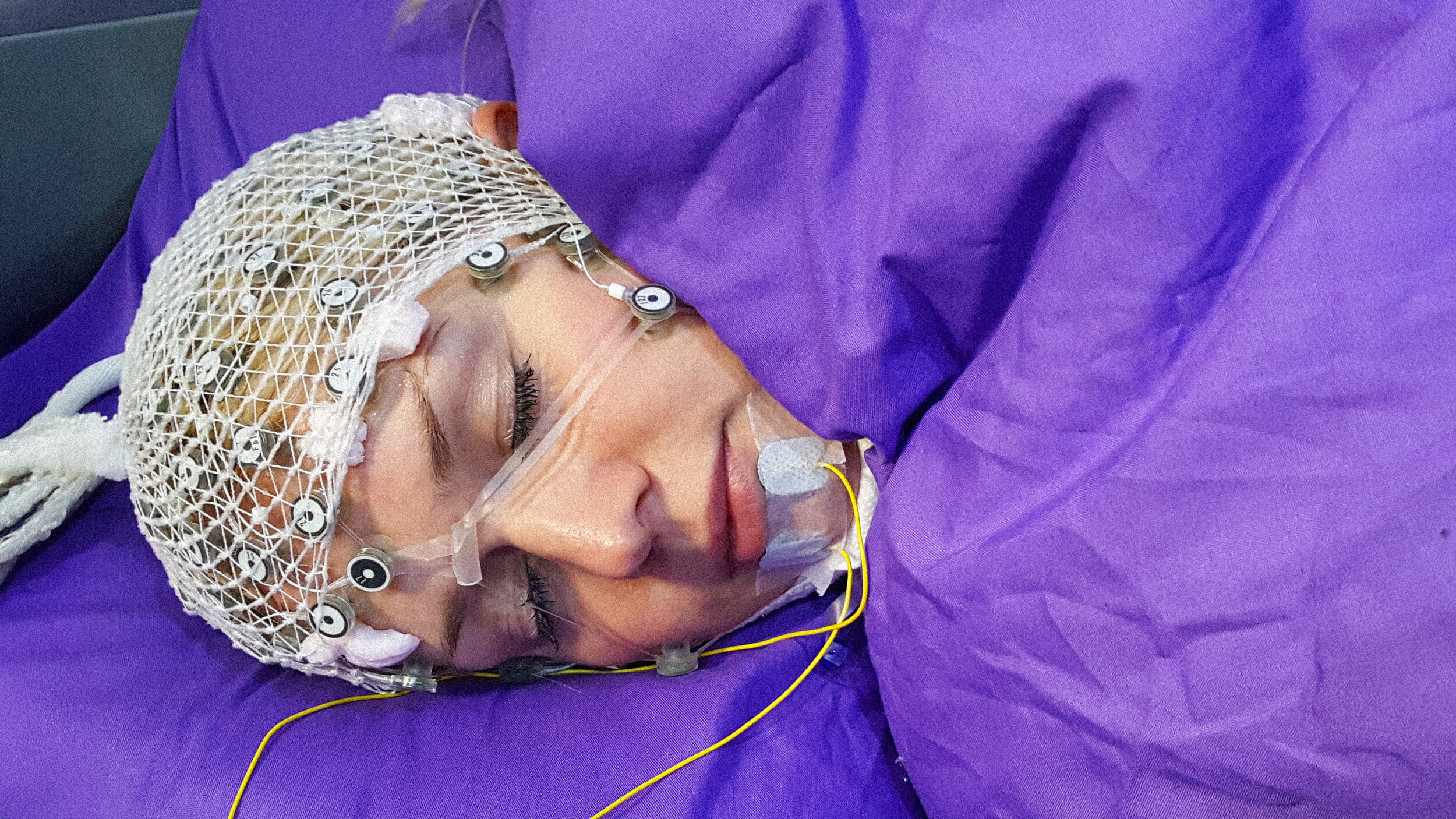Pattern recognition influences religious belief, according to new study

Credit: Nadia Grapes / Shutterstock
- Georgetown researchers found strong implicit pattern learning implies belief in a god.
- The study included American Christians and Afghani Muslims, representing two different religious and cultural backgrounds.
- Further research on polytheistic religious believers could provide insights into a cognitive basis of religion.
In Genesis 1:27, one of the writers of the Bible claims that “God created man in His own image; in the image of God He created them.” The reverse is most likely true: man created a god with his attributes. Physical features are not the only qualities gods share with humans. Pattern recognition appears to be another.
A god that can make sense out of patterns in nature is certainly a powerful being. According to a new study from Georgetown University, it appears that humans endowed with this skill are more likely to believe in a god.
The team, led by Adam Green, an associate professor in the Department of Psychology and Interdisciplinary Program in Neuroscience, writes that religious variability is common. Universal themes might be extracted from disparate regions, but each of the hundreds of religious practices that came be known broadly as Hinduism espouse different ideas.
The same holds true for every religion: Buddhism has a “great vehicle” and a lesser one; Shia practices are wildly different than Sufis; Japanese Buddhists practice quite different rituals than California Buddhists; what’s divine in one Christian sect is blasphemy in another. While the more fervent religious believe their views to be correct, open-minded believers are likely to see the possibility of communication.
To combat the problem of relativism, Green’s team chose volunteers from American Christians and Afghani Muslims, two varied religious and cultural samples. They wanted to know if implicit pattern learning—”perceptual mechanisms evolved for predictive processing of environmental information”—is a predictor of belief in a god.
Why religion is literally false and metaphorically true | Bret Weinstein | Big Thinkwww.youtube.com
The answer, according to their research, is yes. As Green notes,
“This is not a study about whether God exists, this is a study about why and how brains come to believe in gods. Our hypothesis is that people whose brains are good at subconsciously discerning patterns in their environment may ascribe those patterns to the hand of a higher power.”
Consciousness only provides a sliver of data that our brains pay attention to. Bottom-up processes operate below the conscious threshold, such as the biological operations that maintain our body’s homeostasis. Threat detection and other forms of perception are also processed from the bottom-up, although, as the authors write, top-down processing is not an entirely separate domain. The two inform one another.
Intuition is another example of bottom-up processing that appears in consciousness. We pick up signals from our environment and process it unconsciously all the time.
“Because individuals are not aware of such bottom-up influences, intuitions drawn from unconscious processing may instead be consciously interpreted via explicit belief narratives that provide a rationalized context for beliefs and behaviors.”

A general view of the beach and a surfer as photographed on March 20, 2014 in Marina del Rey, California.Photo by Bruce Bennett/Getty Images
Face processing, implicit racial bias, and pathogen avoidance provide further context. In fact, cleansing rituals likely evolved from an unconscious fear of disease. Our ancestors applied a spiritual dimension to their bathing rituals to make sense out of unconscious drives.
For this study, 199 (mostly) Christian volunteers in Washington, D.C. and 149 Muslims in Kabul watched a sequence of dots on a computer screen. They were tasked to press a corresponding button every time a dot appeared. Participants with strong implicit learning abilities began to unconsciously recognize patterns in the appearance of the dots, preemptively hitting the corresponding button before they appeared. None of the volunteers claimed to have seen a pattern, suggesting their guesses were unconscious.
The team observed a link between the strongest implicit learners and religious belief. Recognizing patterns before they appear is correlated with belief in a god. The team was surprised to discover such a strong correlation between two disparate religious and cultural groups, suggesting the potential of a universal theme. As Green notes,
“A brain that is more predisposed to implicit pattern learning may be more inclined to believe in a god no matter where in the world that brain happens to find itself, or in which religious context.”
An interesting next step could be studying polytheistic groups, where pattern recognition is likely stronger. It’s one thing to give credit to one god for everything, but quite another to assign a variety of divine figures for the relationships between natural phenomena.
The authors conclude that they cannot write off top-down processing as part of religious belief. Indeed, faith likes has multivariate influences. Still, this research details another cognitive basis of belief, highlighting common ground we all share regardless of the form of our deities.
—
Stay in touch with Derek on Twitter, Facebook and Substack. His next book is “Hero’s Dose: The Case For Psychedelics in Ritual and Therapy.”





